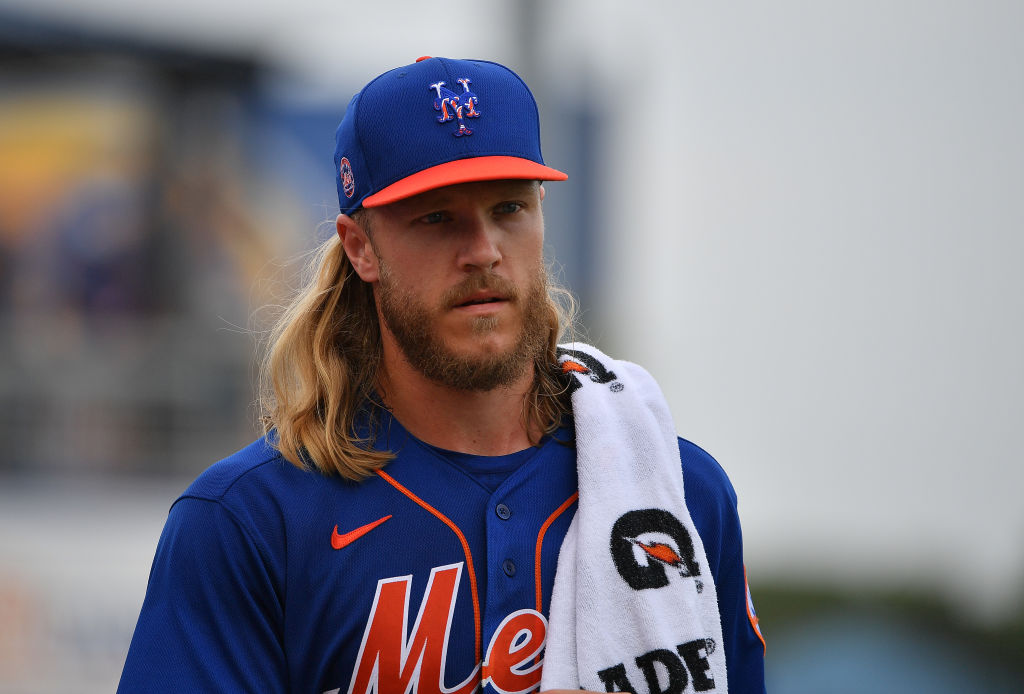Even though the state of Florida has banned all nonessential surgeries in an effort to conserve valuable masks, gowns and gloves for doctors that need them, Mets ace Noah Syndergaard will have his elbow repaired at a hospital there this week.
Syndergaard, who was diagnosed with a torn ulnar collateral ligament in his right elbow, is scheduled to undergo Tommy John surgery at the Hospital for Special Surgery (HSS) in West Palm Beach on Thursday. Though it wouldn’t seem surgery on an elbow ligament would qualify as “essential,” doctors in Florida are allowed to determine what qualifies or not.
A week ago, HSS released a list of what it considered to be essential surgical procedures and “ligament tears where timely treatment is necessary” made the cut. It seems like that perhaps shouldn’t be the case, but a spokeswoman for HSS confirmed Syndergaard’s UCL procedure fits the bill to the Wall Street Journal.
“The procedure in question — acute ligament injury with progressively worsening ulnar nerve symptoms — is defined as essential care,” she said.
Speaking with the WSJ, a Texas surgeon disputed the notion that an injury like Syndergaard’s requires “timely” treatment and said holding off on this type of procedure would hurt a player’s ability to get back on the field but would not have a negative medical impact.
As Syndergaard will likely be sidelined through the middle of the 2021 season, which is also his contract year, after surgery, having the surgery quickly is vitally important to him from a business perspective. Morally though, and perhaps legally outside of Florida, it still seems a bit murky.
“As much as I would like to say it’s not quite elective, in the state of Texas they probably wouldn’t be allowing me to do this,” the Texas surgeon told the WSJ.
Subscribe here for our free daily newsletter
Whether you’re looking to get into shape, or just get out of a funk, The Charge has got you covered. Sign up for our new wellness newsletter today.
